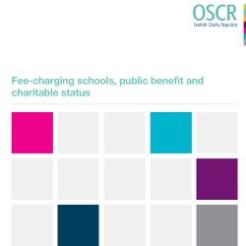The Scottish charity regulator will continue to pay extra attention to fee-charging schools after concluding that this type of charity has a “high risk” of failing the public benefit test.
Since 2007 the Office of the Scottish Charity Regulator (OSCR) has reviewed the charitable status of 52 fee-charging schools. Forty met the test for charitable status, 10 failed and two reviews have been suspended. In nine cases the reason for failure was that the fees charged “unduly restricted access to educational benefits”.
All 10 schools that failed the test have now taken steps to ensure that they are compliant with charity law.
OSCR published a summary report today about its review, which concludes that because one fifth of the schools failed the charity test at first “the initial perception of the high risk of failure was correct”.
“It is therefore reasonable for OSCR to continue to maintain a higher level of vigilance concerning the compliance of this group of charities,” it adds.
The regulator plans to work with schools to improve the quality of trustees’ annual reports and wants to agree a standard that it can enforce. Prioritising schools that have failed in the past, OSCR will select some for annual monitoring to identify issues of potential concern.
The two reviews which have been suspended are because the schools involved are facing other problems. Fernhill School encountered financial difficulties so OSCR suspended its review while the school restructures its governance and finance. Struthers Memorial Church, which Cedars School of Excellence is part of, is the subject of a separate OSCR inquiry.
Shift focus to new areas
OSCR said the compliance of fee-paying schools was an example of “targeted regulation” in action. The regulator recently outlined how it intended to “focus its activities better on critical issues that may adversely affect public trust and confidence”.
Having spent seven years focusing on schools the report said: “OSCR now needs to be able to target its resources on other areas of regulatory interest – and is now doing so, looking for instance at Arms Length External Organisations (such as culture and leisure trusts) linked to local authorities.”









